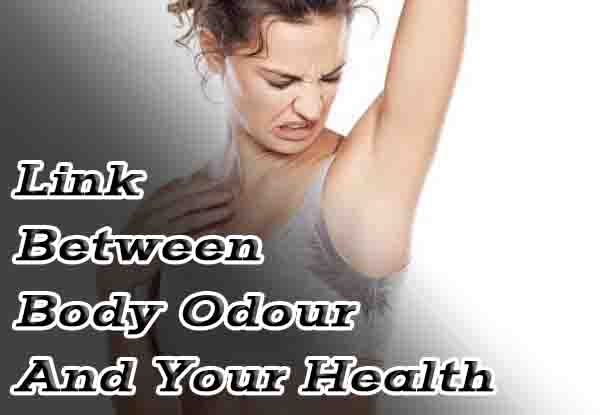Your body odor is caused by perspiration on your skin mixed with bacteria. Your sense of smell may be impacted by hormones, the food you consume, infections, medications, or underlying medical conditions like diabetes.
Medication or prescription-strength deodorants may be helpful. Several natural methods can help lessen body odor, like applying baking soda, apple cider vinegar, or lemon juice to the skin.
You may eliminate body odor in hard-to-reach places with natural solutions. An unpleasant odor can be eliminated with a simple shower or mouthwash swish.
When left addressed, unpleasant body scents can be an indication of poor hygiene as well as a far more serious issue.
In this article, we shall discuss the link between body odor and health in further detail. So keep reading!
Table of Contents
Body Parts That Can Be Affected By Bad Odor
Here are some of the most common body parts that give bad odor and why—
Mouth
Breath odor in the morning is typical. When you’re hungry or dehydrated, your breath may also smell terrible since saliva helps eliminate microorganisms that generate smells.
Try to drink a lot of water throughout the day and wash your teeth twice a day to help avoid bad breath.
Armpits
Usually, you can find deodorants in the Middle East to control your body odor in the armpits. Some over-the-counter medicines function in both ways and come in prescription strength.
Although sweat doesn’t smell by itself, be careful when it comes into contact with microorganisms on your skin.
Belly Button
Your navel might have up to 70 different species of germs. Given that infections are more likely to occur in people with diabetes, an infected navel piercing may smell.
Your belly button might become infected if you cut or scratch it. One sign is an odorous discharge.
The Groin Area
Testicles can chafe against the skin, causing perspiration and body odor. Wearing tight clothing may make your groin even warmer and more humid.
These warm, damp conditions are perfect for fungi and bacteria to flourish. There are a few techniques to control this type of excessive perspiration.
Penis And Vagina
Dead skin cells and fluids can accumulate in your foreskin if you are not circumcised. Smegma is a stinky, cheese-like accumulation that results from this buildup.
This may be avoided by regularly washing your penis. An infection in the vagina, such as bacterial vaginosis or a urinary tract infection, may be indicated by a strong odor.
Feet
Stinky feet can result from excessive sweating and wearing the same pair of shoes daily. They can benefit from being thoroughly washed in antibacterial soap and dried.
The microorganisms that create odor are eliminated by disinfectant spraying on them. Also helpful are foot soaks in vinegar or Epsom salts.
The Important Glands That Can Cause Body Odor
Here are the two most important glands that might be the cause behind most of your body odors—
Eccrine Glands
Sweat is immediately released to the skin’s surface by eccrine glands. Sweating aids in cooling your skin and regulating body temperature as it dries down. Sweat and the germs on your skin combine to create an odor.
This is because water and salt make up most of the sweat generated by eccrine glands.
The cooling impact of perspiration on heated skin occurs when your body temperature increases due to physical activity or heat.
The bacteria on your skin consume these substances simultaneously, creating volatile chemicals like fatty acids and other components that give perspiration its distinct odor.
Apocrine Glands
Your hair follicles’ apocrine glands protrude out from inside. The hair follicle is the tube-like structure that retains your hair in your skin.
The scalp, armpits, and groin are examples of body parts with much hair where apocrine glands may be found.
When perspiration from these glands comes into touch with microorganisms on your skin, it might begin to smell.
Because apocrine glands do not function until puberty, young children do not have noticeable body odor. Stress, strong emotions, and sexual arousal frequently cause apocrine glands to produce sweat.
Body Odor And Health
Sweating more or less frequently or smelling differently might be signs of a medical problem.
Sweating is a normal bodily function, but depending on our diet, personal hygiene routines, or heredity, it may smell unpleasant when it comes into touch with our skin.
When perspiration and microorganisms on your skin come into contact, body odor results. The smell may be strong, weak, or nonexistent.
Body odor may be influenced by things including the meals you eat, hormones, and medicines.
An excessive amount of sweating is caused by a disorder called hyperhidrosis. Because they sweat so much, those who have this illness may be more vulnerable to body odor.

